Best AI Tools for Students
Updated on 29 Mar 2024 • 8 min read • posted by Maria H
Imagine. You live in a world where education is as personalized as your Spotify playlist. Study plans are tailored to your unique strengths and weaknesses. A one-size-fits-all syllabus doesn’t exist anymore. It can be the future of education with artificial intelligence.

AI in education can help to enhance the quality and equity of studying. Artificial intelligence is able to provide personalized learning, adaptive assessment, and data-driven insights in education. It also can help teachers to free up their time from casual administrative tasks and focus more on, you know, actually educating.
So let’s see which AI-powered tools can assist you while studying and how we can benefit from AI in our educational purposes.
How Can AI Help You in Learning
We’ve analyzed a bunch of articles, videos, and our own experience and created a list of the top 6 ways of using AI in education.
Create Study Plans
Traditional study plans often take a “one-size-fits-all” approach. That's like everyone in town wearing the same size shoes—uncomfortable, right? Here AI comes in handy as it generates study plans and recognizes that we all learn differently. It creates a study plan that's customized to your strengths, weaknesses, and even your schedule. This targeted approach helps you learn more effectively and cuts down on wasted time.
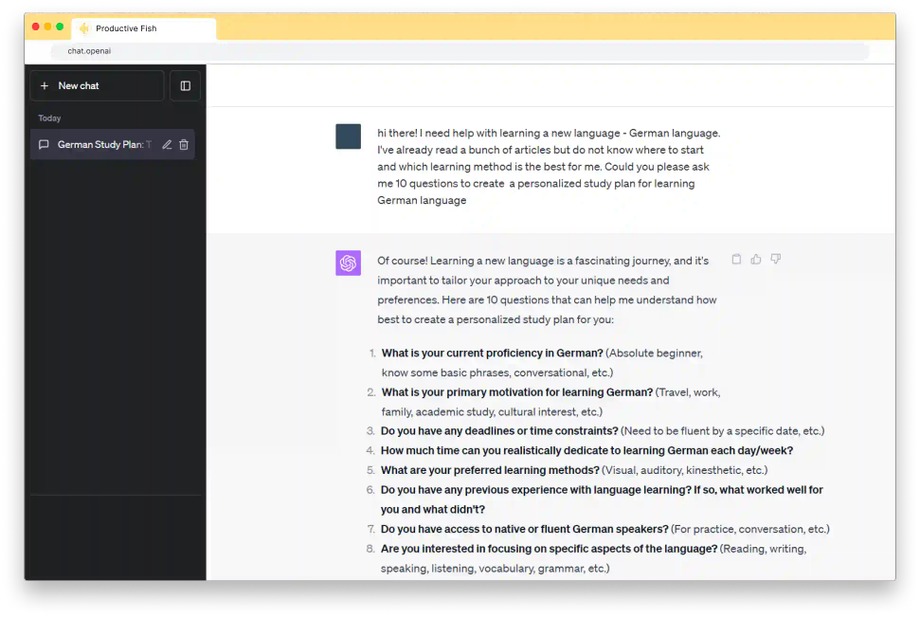
For example, let's say you need to learn a new language. You’ve already read plenty of articles, but don’t know where to start. In such a case, use, let’s say ChatGPT, to generate a study plan. Tell the AI to create a study plan and ask some questions to make this plan more effective and personalized. Then answer the provided questions, and AI will adjust your study plan to include more resources and exercises focused on improving needed skills.
Assist with Note-Taking
AI-powered note-taking means you can focus more on what the teacher is saying rather than just writing everything down. Instead of a messy notebook filled with half-sentences and doodles, you get clean, organized, and searchable notes. The AI can transcribe lectures in real time, summarize key points, and store all the needed information in one document as our top-picked tools do. And those notes are customized as you can quickly implement different note-taking methods (mind mapping, Cornell notes, etc.).
Practice Speech Skills
Practicing public speaking skills on your own can be uncomfortable. Especially if you are preparing to give a class presentation or just want to sound more confident in daily conversations. AI can help you to be more prepared for the next public speech on the stage or the next Zoom call. Start practicing with the help of such AI tools for students as Orai app or Impromptu Generator. Open the app, follow instructions, and give a speech about climate change or a presentation of your project. As you speak, the AI tool analyzes your tone of voice, intonation, and the information you are presenting. Once you're done, the app will give you a rundown of what you did well and where you could improve.
Grade Prediction
Some AI tools can grade your work for you before it even reaches your professor’s desk. These advanced platforms use machine learning algorithms to assess the quality of your answers, providing instant and valuable feedback.
For instance, these tools can catch basic errors such as spelling and grammar mistakes, which you can then correct on the spot. This immediate feedback loop allows for continuous improvement and minimizes the likelihood of repeating the same mistakes in the actual exam. Moreover, it's fascinating to see how AI-generated grades compare to real-life grades given by human educators.
Prepare for Exams
The whole process of reviewing studying materials before a test or exam is overwhelming in itself. Obviously, having a mock assessment is a good opportunity to check your understanding of a topic before you pass the real exam. So, AI tools can help you to create customized quizzes or practice exams based on your learning pace and subjects. Such AI-driven assessments adapt to your skill level, offering you questions that will challenge you and show your strong sides and weaknesses on which you should work.
Organize the Studying Management
One of the biggest challenges we face is managing our time effectively. With multiple subjects to focus on, assignments to complete, and exams to prepare for, you can just get lost. AI-powered tools, such as Reclaim or Notion, automate the process of creating schedules, helping you to manage your time better. They use simple inputs like the subjects you're studying, the dates of your exams, and other commitments you may have. Using the given information, the AI-powered application will compose a neatly organized schedule with all needed home tasks and deadlines.
Best AI Tools for Students
To take advantage of AI-powered tools we suggest trying out the best AI tools for students.
Chegg
Chegg is a student-friendly platform that can help with citations, plagiarism checking, grammar checking, proofreading, math and much more. Such features make it a universal tool for students.
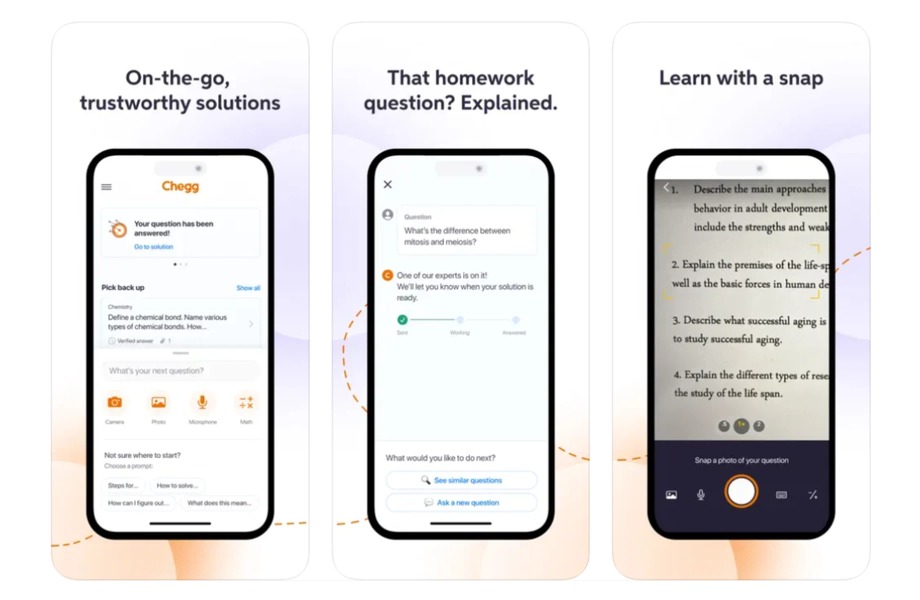
Also, Chegg introduces CheggMate – an all-in-one homework AI agent. It combines several learning apps at the same time. CheggMate can search for answers from its database, give instant AI solutions powered by the most advanced models, and make your experience personalized. You can ask your questions simply with texts or screenshots everywhere.
Chegg price:
- Free to use with some limitations
- Premium plan for:
- $14.95 per month (20 expert Q&A questions, unlimited access to library)
- $19.95 per month (all features)
CheggMate price:
- $4.99 per 15 credits
- $13.99 per month
- $29.97 per 3 months (save $12)
- $102 per year (save $66)
Tutor AI
An online tutor that’ll find any topic you need to learn. Tutor AI is simple to use: just search for the topic you need and get the mini-courses. With premium version you can make your experience even more personalized: track the progress, set your learning level and evolve over time.
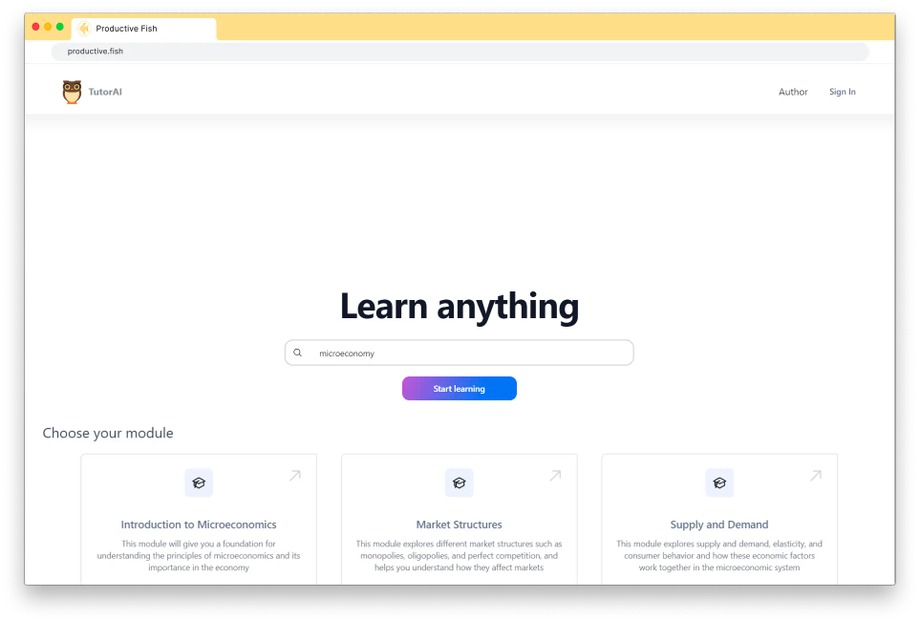
The application does not stand still and soon pictures and videos will be added to the training materials.
Tutor AI price:
- Free 3 requests
- Premium plan for $10 per month
Socratic
Socratic is a learning app powered by Google AI. Its main task is to understand your school work at a high school and university level. It's your go-to app when you need clarity in your coursework. With Socratic, simply ask your question, and it'll diligently search the web to uncover the finest learning resources for you, simplifying even the most challenging concepts.
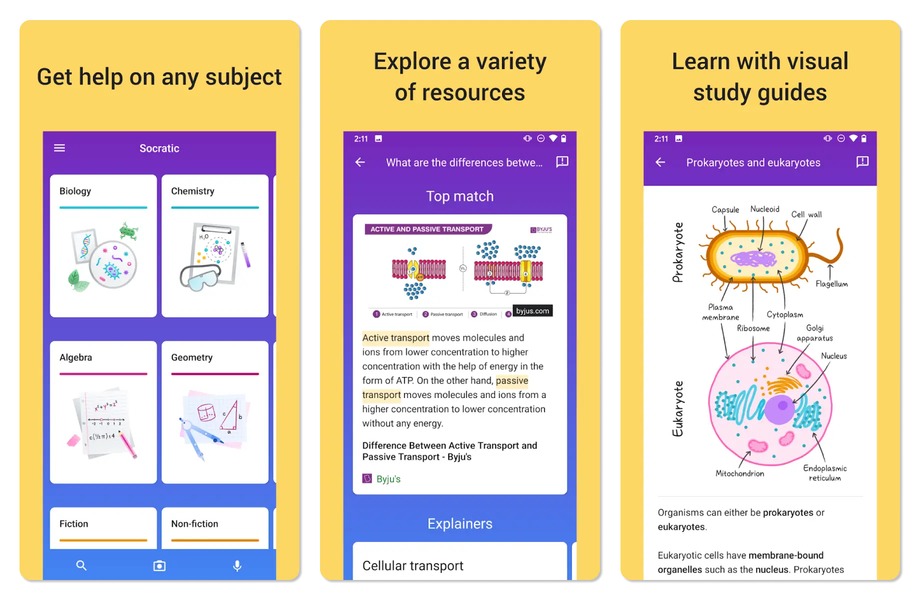
The Socratic app stores everything you need in one place: videos and step-by-step explanations that suit your learning pace, etc. With visual explanations created in collaboration with experts and educators, Socratic covers subjects like Algebra, Biology, History, and more.
Socratic price: free
Owlift
AI-powered Owlift is an innovative tool which main principle is to use Feynman method – explain like i am five. As you ask Owlift any question you can choose your current level of understanding the topic. Then, the tool will give you an answer as if you are five. Such principle simplify complex topics, enhance learning, and empower students to understand the material.
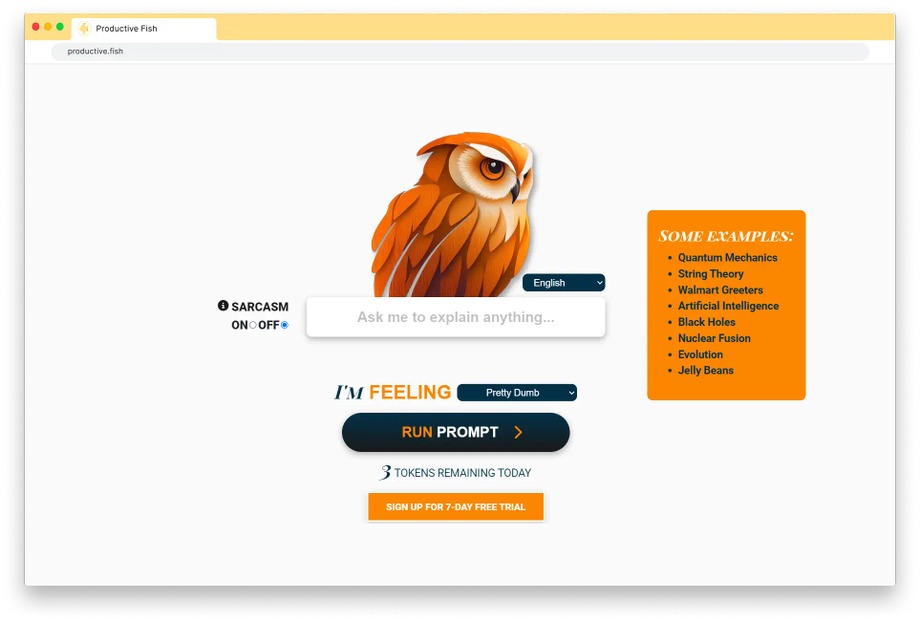
And the tool's features do not stop there. It can also help you to create mind maps, flash cards, email responses. Additionally, Owlift can suggest the lesson plan due to your grade, goals, topic and desired lesson duration.
Owlift free:
- Free 3 credits
- A 7-day free trial of the Premium plan
- Premium:
- $3.99 per month (200 credits)
- $6.99 per month (600 credits)
- $11.99 per month (1500 credits)
Quizlet
Quizlet is an innovative educational app. We’re used to it as it’s just a flashcard generator, however, creators launched new cool features. One of them is Magic Notes with which you can easily transform study materials into flashcards, practice tests, and outlines.
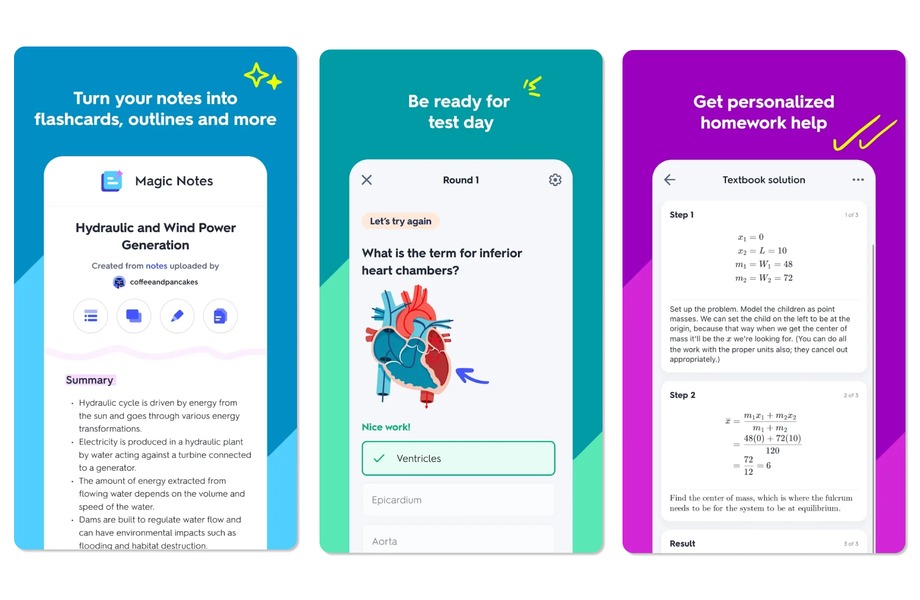
Another helpful feature is Q-Chat. It's always ready to assist you with clarifications or a quick review. Quizlet also provides expert solutions, combining expert-written content with AI enhancements for reliable answers. The Memory Score feature helps you track a long-term recall, making sure you retain what you've learned. It's a valuable tool for your progress.
Quizlet price:
- Free to use
- A 7-day free trial of the QuizletPlus
- Premium:
- $7.99 per month
- $35.99 per year (save $60)
Mendeley
Mendeley is a tool that helps you write research papers and articles. It easily organizes the search and annotation of academic materials. With Mendeley, you can easily create citations and bibliographies. Mendeley adapts to a wide range of journal styles.
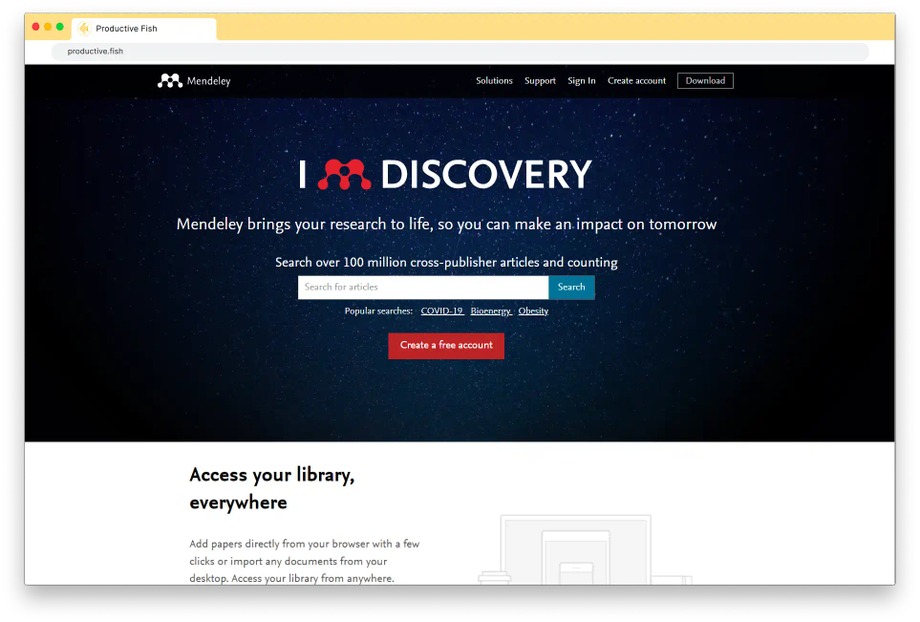
This tool is designed to save you time and promote good citation practices. You can access your library from anywhere and add articles from your browser or desktop with minimal effort.
Mendeley price: free
Zotero
Zotero is your personal research assistant. With it, you can easily collect, organize, annotate, cite, and even share your research. Zotero intuitively detects content while you browse the web, whether it's an academic article from the JSTOR library or a news story from The New York Times.
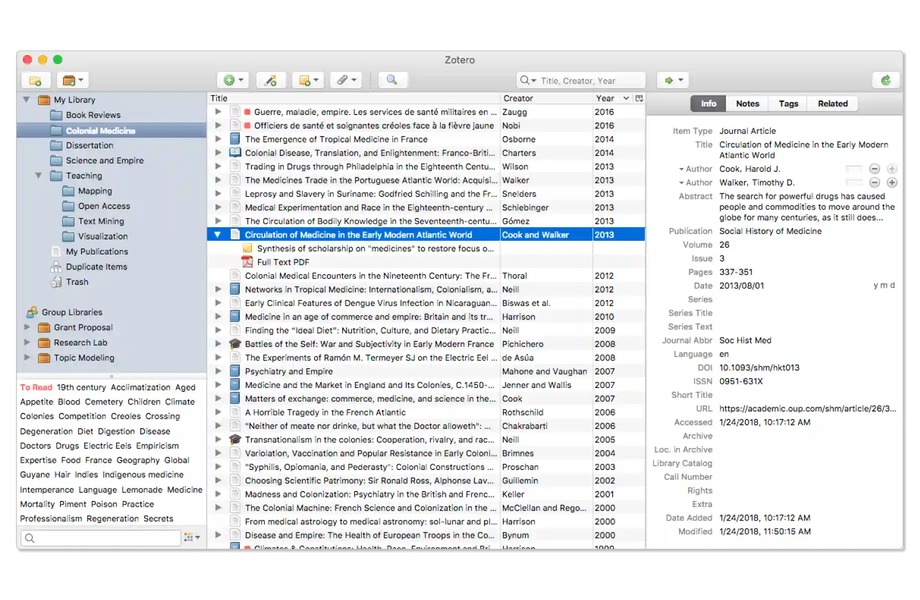
The Zoreto app enables you to organize your research your way. Sort items into collections, tag them with keywords or set up saved searches that automatically populate with relevant materials as you work. The app instantly generates references and bibliographies, seamlessly integrating with popular text editors like Word, LibreOffice, and Google Docs. With support for over 10,000 citation styles, you can effortlessly format your work to meet any style guide or publication requirement.
Zotero price: free to use, but storage is paid
LanguageTool
LanguageTool is your writing assistance which helps to check and enhance spelling, style, and grammar in texts. It could be an email, a blog post, or even a quick note that LanguageTool will improve in real time.
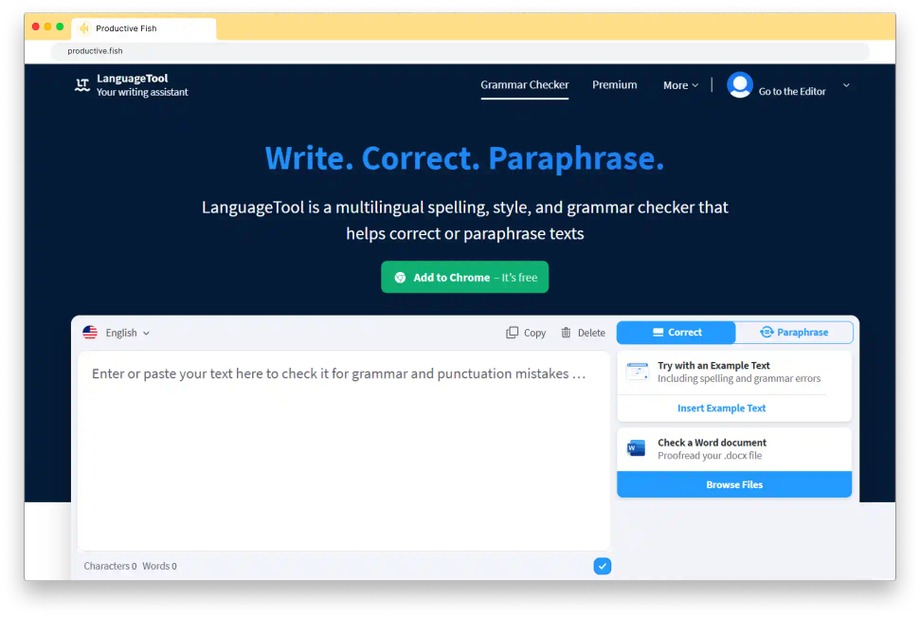
The LanguageTool offers a distraction-free writing experience that will make your writing process smoother and more enjoyable. It features a personal dictionary and secure storage for your texts. The Picky Mode provides advanced suggestions for punctuation, writing style, and typography. Plus, you can choose between a dark or light appearance to suit your preferences.
LanguageTool price:
- Free to use
- Personal Premium:
- $12.45 per month
- $22.45 per 3 months (save $15)
- $34.95 per year (save $114)
Mem
Mem is a self-organizing workspace, your own J.A.R.V.I.S. It can save notes, links, tweets, and more with ease.
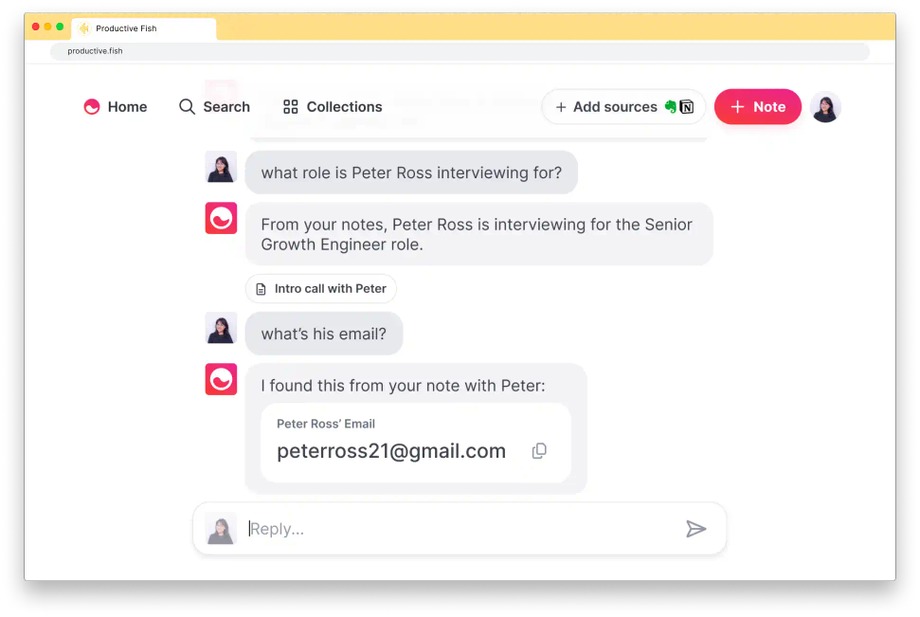
The Mem app goes beyond being just a chatbot by serving as your AI thought partner, helping you make connections between different notes and files. As you are using Mem it is learning your style. Such a feature helps this AI-powered tool to adapt and make things easier for you to remember, create, and find the information that's most important to you.
Mem price:
- Free basic plan with limited functionality
- Premium:
- $14.99 per month
- $99.96 per year (save $80)
StayFocusd
StayFocusd is one of our top website blockers. And the next time you're tempted to check your email or update your social media, StayFocusd will help you to stay focused.
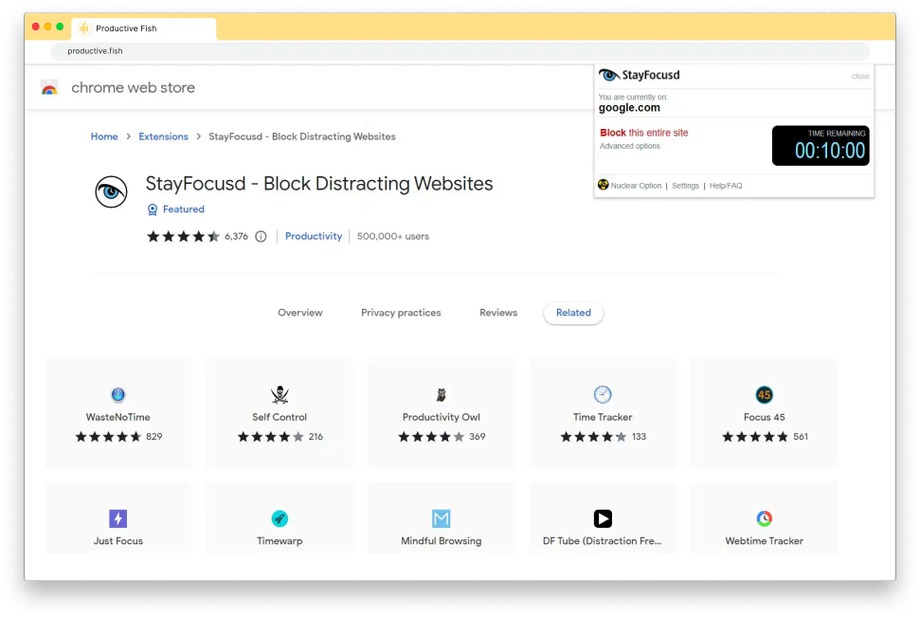
This productivity extension, designed for Google Chrome, empowers you to regain control over your study time by limiting your access to those tempting distractions. The StayFocusd tool is highly customizable, allowing you to block entire websites, specific subdomains, paths, pages, and even specific in-page content like videos, images, and forms. With this level of control, you can create a tailored environment that optimizes your studying experience.
StayFocusd price: free
Potential Concerns and Limitations of AI Use
While the integration of AI tools in education brings about exciting opportunities, it also raises several concerns and limitations that we should take into consideration.
Cost of development and implementation. The application of AI in education often demands costly investments in maintenance, comprehensive training, and support for both teachers and students. Educational institutions may find these costs to be unaffordable, which could increase gaps in obtaining high-quality education.
Presentation of information. Tone and context of human speech impact how we receive information. Our interpretation of things can be influenced by our cultural backgrounds, which adds another layer of complexity that general AI systems struggle to manage. So, when it comes to presenting complex knowledge, humans continue to have an advantage.
Privacy and security. When it comes to using AI in the classroom, privacy concerns are a major worry. These systems frequently gather and examine enormous quantities of data on students, including personal information, academic performance, actions, and interactions. If not carefully protected, this data may be open to hacking, abuse, or exploitation by other parties including businesses, governments, or criminal organizations.
However, AI tools also offer many opportunities and benefits for enhancing teaching and learning processes, such as personalization, adaptation, automation, feedback, and analytics. Therefore, it is important to balance the potential advantages and disadvantages of AI in education and to ensure that its application is guided by ethical principles and values.
Future of AI in Education
We’ve been living with AI for decades, so it obviously is going to integrate even more into our routine lives. The Industrial Revolution improved the processes in manufacturing and technologies with AI will revolutionize teaching and learning processes. Our main task as users is to use it smartly. Not for drought-free cheating.
AI for students should be used to foster critical thinking, analyze large amounts of data from students’ learning activities, make education more accessible and equitable for all learners, and automate some of the repetitive and help us study even more effectively. And it is crucial to ensure that AI is used in a responsible and ethical manner, that respects the rights and dignity of all learners and teachers.